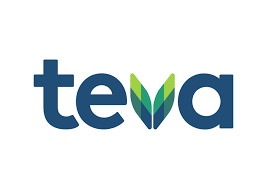- Bone Health
- Immunology
- Hematology
- Respiratory
- Dermatology
- Diabetes
- Gastroenterology
- Neurology
- Oncology
- Ophthalmology
- Rare Disease
- Rheumatology
Amgen, Merck, Teva Provide First-Quarter Biosimilars Info
There's no end in sight for Enbrel (etanercept) sales erosion, but Amgen's biosimilars are holding their own, the company reported.
Biosimilars producers reported positive sales trends for biosimilars as the pandemic wears on and said patients still are not visiting doctors in the proportions they did before the start of the health crisis in early 2020.
Amgen
Amgen reported higher sales for biosimilars and noted mixed results for legacy brands that face biosimilar competition. In all, the company said revenues dropped 4% to $5.9 billion for the first quarter of 2021 vs the comparable 2020 first quarter. COVID-19 sales trends were partly to blame for this. Amgen reported net income of $1.6 billion, down 10% from last year’s first quarter.
First-quarter sales of the bevacizumab biosimilar Mvasi were up 156% from this time last year ($294 million vs $115 million). Amgen reported higher sales volume but a lower net selling price. Mvasi has a 50% share of the bevacizumab market in the United States, and Amgen expects to launch in multiple markets worldwide going forward.
Sales of the trastuzumab biosimilar Kanjinti were up 35% compared with the first quarter of 2020 ($161 million vs $119 million). Again, higher volume was offset by a lower net selling price. The US share of the trastuzumab market for this product is 43%.
Amgen saw sales of its adalimumab biosimilar (Amgevita) rise 23% this past quarter vs the comparable 2020 quarter ($106 million vs $86 million). However, sales growth appears to have flattened, climbing just 3% since the fourth quarter of 2020.
Originator brands at Amgen that face biosimilar competition had sales declines. Enbrel (etanercept) revenues dropped 20%, from $1.15 billion in the first quarter of 2020 to $924 million, the result of sales volume declines and a lower net selling price. The company said it expects this downward trend to continue.
Sales of pegfilgrastim (Neulasta) dropped 21% over the past year, from $609 million to $482 million, the result of selling price and volume declines caused by biosimilar competition. The Neulasta Onpro, a wearable injector device, maintained a 54% share of the pegfilgrastim market in the first quarter “and continues to be the preferred choice for physicians and patients,” Amgen said. However, the company reported that the most recent average selling price for Neulasta in the United States was down 30% over the past year and 9% over the past quarter.
Sales of the filgrastim originator Neupogen were down 48% over the past year, the result of volume declines caused by competition, Amgen said.
For recent news about Mvasi, click here.
For a detailed Amgen drug-by-drug slide presentation, click here.
Merck and Organon
In a first-quarter earnings statement, Merck, of Kenilworth, New Jersey, has reiterated expectations for at least $6.1 billion in 2021 revenue for its planned biosimilars and women’s health products spinoff Organon.
Organon was acquired from Shering-Plough in 2009 and will be an independent company on June 2, 2021, with public trading set to begin June 3, 2021. Merck has stated that in spinning off Organon, it expects to achieve operational efficiencies of $1.5 billion spread over 3 years.
The biosimilars unit that is part of Organon generated roughly $250 million in 2019, and Merck has not been consistent about reporting biosimilars revenues since then. Merck has partnerships with Samsung Bioepis of Incheon, Republic of Korea, to market infliximab (Renflexis), trastuzumab (Ontruzant), and etanercept (Brenzys, Eticovo) biosimilars. Organon generates 75% of its sales revenue from markets outside the United States.
For more reading about Merck and its biosimilars spinoff, click here.
Teva Pharmaceuticals
In a first-quarter earnings statement, Teva Pharmaceuticals of Tel Aviv, Israel, reported a 26% US market share for its biosimilar rituximab (Truxima), which is also in the European Union. Overall company revenues dropped 9% to $3.98 billion.
The company attributed the drop to lower sales for over-the-counter, generic, and respiratory products, among other product declines. Strong sales were reported for Austedo (deutetrabenazine), for tremors, and Ajovy (fremanezumab), for migraines. No actual revenue information was provided for Truxima, which was launched in 2017 in the European Union by Celltrion and in 2019 in the United States by Teva and Celltrion.
Newsletter
Where clinical, regulatory, and economic perspectives converge—sign up for Center for Biosimilars® emails to get expert insights on emerging treatment paradigms, biosimilar policy, and real-world outcomes that shape patient care.



